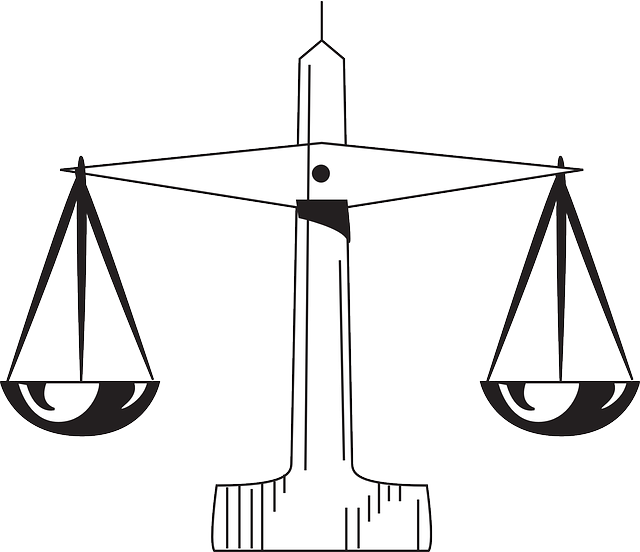Contempt of court in Oregon is a serious matter, with distinct types including direct defiance in court and indirect hindrance outside. Legal experts emphasize understanding these nuances for potential defenses and consequences. Oregon attorneys offer critical guidance, highlighting that contempt charges result from non-compliance or conduct obstructing justice. Civil and criminal contempt have different approaches, with civil involving financial obligations and criminal carrying harsher penalties. Professional insights stress the importance of evidence, behavioral analysis, and strategic defense planning. When facing charges, seeking Oregon attorney opinions can enhance favorable outcomes.
Looking for expert guidance on contempt cases in Oregon? This comprehensive guide brings you valuable insights from leading Oregon attorneys. We explore the intricate world of contempt of court, its various types, and how it’s defined within the state’s legal framework. Learn about the crucial factors that determine when contempt is considered, the available legal remedies for clients, and the importance of evidence in these cases. Furthermore, discover best practices for responding to charges, all based on the professional opinions of Oregon legal experts.
- Understanding Contempt of Court: Definition and Types in Oregon
- When is Contempt Considered: Key Factors from Oregon Attorneys
- Legal Remedies for Contempt: Options Available to Oregon Clients
- The Role of Evidence and Proof in Contempt Cases According to Oregon Lawyers
- Best Practices for Responding to Contempt Charges: Insights from Oregon Legal Experts
Understanding Contempt of Court: Definition and Types in Oregon

Contempt of court is a serious matter that refers to the willful failure or refusal to comply with a court order or rule. In Oregon, this legal concept is governed by specific statutes and judicial interpretations, offering valuable insights for both plaintiffs and defendants involved in contempt cases. Understanding the different types of contempt is crucial for anyone seeking legal advice from Oregon attorneys.
In general, contempt can be direct or indirect. Direct contempt occurs when a person engages in conduct that defies the court’s authority in the courtroom or during proceedings. Indirect contempt, on the other hand, involves actions taken outside the court that hinder or prevent the court’s ability to enforce its orders. Oregon legal experts often emphasize the importance of recognizing these distinctions as they impact the potential consequences and defenses available to individuals facing contempt charges.
When is Contempt Considered: Key Factors from Oregon Attorneys

Contempt of court is a serious matter, and determining when it’s applicable involves a nuanced understanding of legal principles. Oregon attorneys provide valuable insights into this complex issue, highlighting key factors that define contempt. According to legal experts in the state, contempt is generally considered when an individual fails to comply with a court order or engages in conduct that obstructs justice. This includes deliberate actions like refusing to testify, failing to produce evidence as ordered, or willfully ignoring subpoena requests.
Professional opinions from Oregon lawyers emphasize that the intent and impact of the actions are crucial factors. A party may be held in contempt if they act with knowledge or reckless disregard for the court’s authority, even if there was no intention to defy the order. The legal perspectives of these experts also stress that the consequences must be directly linked to the court’s process, such as hindering a trial or delaying justice, to warrant contempt charges.
Legal Remedies for Contempt: Options Available to Oregon Clients

When faced with a contempt case in Oregon, individuals and entities have several legal avenues to explore. Oregon attorneys specializing in family law, civil litigation, or alternative dispute resolution (ADR) can offer valuable insights and guidance tailored to each unique situation. These legal experts can help navigate complex issues surrounding non-compliance with court orders, ensuring the protection of rights and interests.
The options available depend on the nature of the contempt—civil or criminal. Civil contempt involves an individual failing to meet a financial obligation or comply with a non-monetary order. Attorneys can advocate for sanctions, such as fines or imprisonment, until the contemnor complies. Criminal contempt, on the other hand, deals with willful disobedience of a court’s process and is typically punished with fines and/or jail time. An Oregon lawyer’s analysis might recommend negotiation through ADR to avoid prosecution, especially in less severe cases, ensuring a more favorable outcome for clients.
The Role of Evidence and Proof in Contempt Cases According to Oregon Lawyers

In contempt cases, evidence and proof play a pivotal role, as determined by Oregon attorneys. The lawyers emphasize that establishing a contemnor’s willful disregard for a court order requires substantial and compelling evidence. This often involves presenting documents, witness testimonies, and other tangible proofs to demonstrate beyond a reasonable doubt the individual’s failure to comply with the court’s mandate. Oregon legal experts note that direct evidence of intent is challenging to come by, making circumstantial evidence equally important.
Professional insights from Oregon attorneys suggest focusing on patterns of behavior, repeated failures to adhere to court orders, and any attempts to obstruct justice. These legal perspectives highlight the need for a thorough analysis of all relevant facts and circumstances to build a strong case. This meticulous approach ensures fairness and accuracy in determining guilt or innocence in contempt cases.
Best Practices for Responding to Contempt Charges: Insights from Oregon Legal Experts

When facing contempt charges in Oregon, it’s crucial to approach your response with a strategic mindset. According to legal experts from across the state, best practices involve a thorough understanding of the specific allegations and the unique context of the case. An initial step is to carefully analyze the court’s orders to ascertain any ambiguities or areas of misinterpretation that may have led to the alleged contempt. Oregon attorneys emphasize the importance of open communication with the judge, seeking clarification and providing context where necessary.
Moreover, these professionals suggest preparing a compelling defense that addresses the merits of each charge. This can involve presenting evidence, witness testimonies, or legal arguments that either refute the allegations or provide extenuating circumstances. Engaging with a dedicated Oregon lawyer who specializes in contempt cases ensures you receive expert insights tailored to your situation, ultimately enhancing your chances of a favorable outcome.






